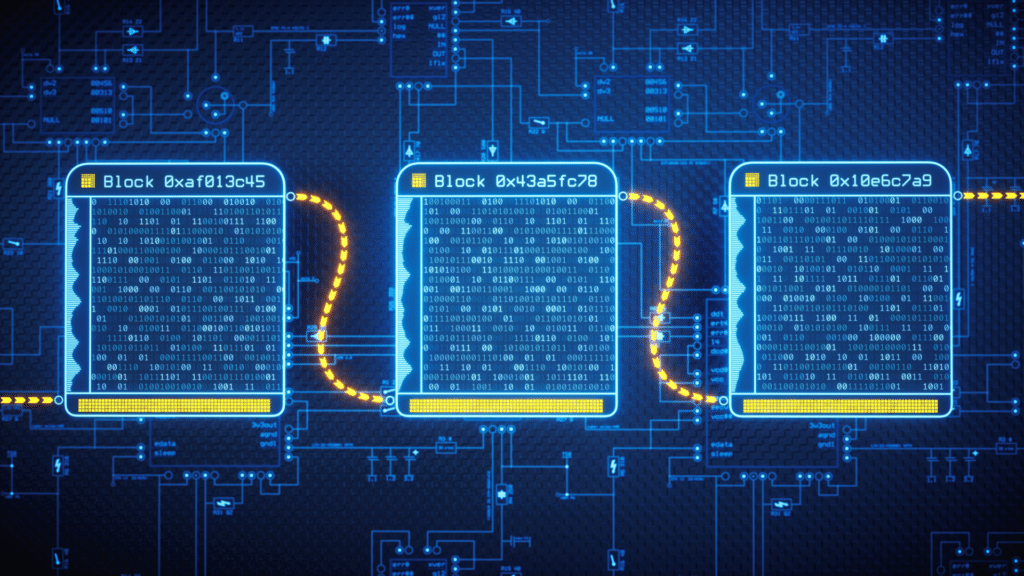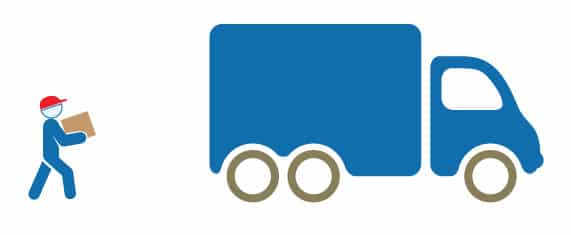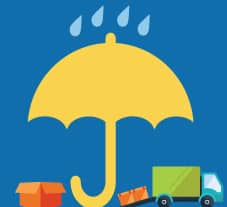Toward the end of last year, the terms “Web3” and “decentralization” were being tossed around online in seemingly every other tech article. But even now, there’s a ton of confusion as to what they both mean. Stranger still is that the terms were often used alongside “blockchain” – the technology that makes mysterious cryptocurrencies like Bitcoin possible.
A lot of business owners, and internet users in general, want to know what these terms mean and, more importantly, how it will affect their lives. We count ourselves among them!
To many pundits, tech geeks, and journalists, Web3, decentralization, and blockchain are the “future.” They may very well be right! However, right now, we can’t tell whether it’s media hype or the beginning of a hard-to-understand technological revolution like the internet in the 1990s. In other words, we’re not going to try to sway you one way or the other.
Now with that said, buckle up! When it comes to Web3, decentralization, and blockchain, quick definitions fall flat without a few paragraphs of explanation. Each is a complicated term backed by either complicated philosophy or technology. In this article, we explain these tricky concepts as straightforwardly as we can.
Decentralization: one possible way to give the internet back to its users
In December 2021, Kickstarter announced it was moving to blockchain, and in the process, released a blog post “announcing [its] commitment to a more open, collaborative, and decentralized future.” The key word being “decentralized,” a word which was linked to a Medium article on the subject.
The linked article that Kickstarter cited – “Why Decentralization Matters” – is a philosophical one, and it starts by recapping the history of the internet. In seeking to understand the concept, their article was especially helpful to us, so we’ll summarize the basics here.
The internet up until the early 2000s was the first era of the internet, built on open-source protocols. No one owned the internet, nor did they own the infrastructure of the internet. It was a very egalitarian landscape, but also disorganized and difficult to navigate.
The second era of the internet was built on the technology created by Google, Apple, Facebook, and Amazon. Fast forward to now and we have smartphones, mobile apps, and social media. Big companies control the platforms, but anyone can participate. The technology is more sophisticated and easy-to-use than anything that came before it, and it’s cheap to boot.
But we don’t live in a utopia right now. These handful of companies can change their rules at any time – ruining companies’ audiences and profits. At the same time, the companies running these platforms are disincentivized to fix problems such as false news and privacy breaches. The end result: the internet now is a high-tech, low-trust environment.
Decentralization, as it is described, is a way for developers, businesses, and media organizations to take power back, regaining control over their audiences and profits. This would slowly usher in a new era of the internet – Web3. Many believe blockchain technology to be the foundation upon which Web3 will be built.
These are the big ideas. Whether decentralization is a solution to the problems of fake news, corporate influence, and privacy problems, only time can tell.
Short version: decentralization is an ambitious goal to make the internet less dependent on large corporations.
Web3: a new era of the internet rooted in decentralization
Most people familiar with the modern internet would agree that false news, corporate influence, and privacy violations are serious problems. Coming up with ways to fix that, however, is where the fights start.
Some people advocate for government regulation of internet companies like Google, Apple, Facebook, and Amazon. The idea is that the internet is kind of like the phone lines managed by AT&T, which the government broke into smaller companies. Or perhaps the internet is like radio or television, which are regulated by the FCC.
But there are a couple of counterarguments. The first and easiest to understand is that “it gives the government too much power.”
The second counterargument is that the internet is fundamentally different from any other form of communication. Because it is based on many-to-many communication instead of one-to-one communication (like phone lines) or one-to-many communication (like TV), it can’t be treated the same way. It’s argued that there needs to be a way to regulate the internet without pulling in corporations or the government.

That’s where Web3 comes in. Web3 seeks to keep the ease-of-use provided by the current iteration of the internet while providing the community-governed, decentralized freedom of the ‘90s and early ‘00s internet.
It sounds like a wonderful idea, but there is a catch. There is considerable disagreement about how exactly to do this. One idea that’s picking up steam is an internet based on private “crypotnetworks,” which are inherently more private and that give users more economic power online. Details beyond that are hotly contested depending on your source.
Check out this interview on Wired for another perspective.
Short version: Web3 is a version of the internet that mixes the freedom and privacy of the 1990s and 2000s and the convenience of the 2010s.
Blockchain: the technology that could make Web3 & decentralization happen
One issue with Web3 is that in order for it to be viable, and in order for the decentralization dream to take place, the tech has to support it. This isn’t the early 1990s – you can’t just invent a new communication protocol and expect everyone to adopt it for lack of other options. A new technology is required, with distinct benefits, and the best candidate is blockchain.
At its root, blockchain is “a system of recording information in a way that makes it difficult or impossible to change, hack, or cheat the system.” Blockchain is kind of like giving students a magic history textbook that is updated with current events as they unfold. When the author decides it’s time to add a new event, a new page is magically added. Yet the author can never go back and edit the past. It’s a neat system.
Blockchain makes it possible to have secure, anonymous, consistent, unchangeable, time-stamped records not just on one computer but many computers in a network simultaneously. This is a big innovation.

Of course, blockchain talk these days is mostly overshadowed by cryptocurrency such as Bitcoin and Ethereum. Bitcoin, for example, is a financial instrument that can be traded between users and used to purchase items. Unlike government-issued currencies such as the US Dollar, UK Pound Sterling, and others, Bitcoin maintains its value in the unchangeable digital ledger provided by its blockchain infrastructure.
Contrary to popular belief, cryptocurrencies are not the only existing application of blockchain technology. Blockchain can be used for insurance, securing personal information, voting, logistics and supply chain tracking, and data storage. But it will take many years before blockchain technology will be adopted and used to its full potential.
Short version: blockchain is a groundbreaking recordkeeping technology that can solve the decades-old problem of keeping truthful, accurate information on the internet at scale.
Final Thoughts
Regardless of whether the goal of decentralization is an achievable goal or a pipe dream, a utopia or a misstep, the idea is going to stick around. The related concept of Web3 will, too. Meanwhile, blockchain technology will continue to be used in new ways regardless of whether decentralization or Web3 is going to happen.
For the average business owner, there is perhaps one clear and actionable takeaway. Don’t depend strictly on tools provided by Google, Facebook, or Amazon to succeed. Technology is always evolving, and it’s important to have multiple ways to stay in touch with and market to your customers.
You don’t have to be able to predict the future to succeed in business. Just keep an eye on the news, find ways to mitigate risk, and try not to depend on one company to survive!
You’ve done everything by the book. Your Kickstarter campaign is almost ready to launch.
You made a great product. Built an audience. Set up a campaign page.
But how do you ship it?
We put this checklist together to help you get started. It's free.





